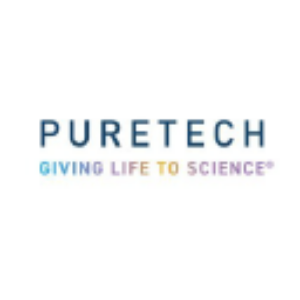PureTech Receives Orphan Drug Designation for LYT-200 in Acute Myeloid Leukemia
LYT-200 is being advanced in hematological malignancies such as acute myeloid leukemia (AML) and high-risk myelodysplastic syndrome (MDS), and locally advanced/metastatic solid tumors, including head and neck cancers
Phase 1b clinical trial evaluating LYT-200 in relapsed/refractory AML and MDS patients is ongoing
“The current long-term survival rates of patients with relapsed or refractory AML are very poor, and there remains a tremendous unmet need for more effective therapies,” said Amir Fathi, MD, Director of the Leukemia Program at Massachusetts General Hospital and lead investigator of the trial.
LYT-200 is a fully human IgG4 monoclonal antibody (mAb) targeting galectin-9, a potent oncogenic driver in leukemia cells and an immunosuppressive protein. LYT-200 has demonstrated direct cytotoxic, anti-leukemic effects through multiple mechanisms and is being developed as a potential novel treatment for hematological malignancies, such as relapsed/refractory AML and high-risk MDS, as well as locally advanced/metastatic solid tumors that have poor survival rates, including head and neck cancers. LYT-200 is currently being evaluated in an ongoing Phase 1b clinical trial in relapsed/refractory AML and MDS, both as a single agent and in combination with standard-of-care venetoclax and hypomethylating agents (HMA). Initial findings from this trial were announced in 2023, and additional data are expected to be presented in a scientific forum in 2024.
“Orphan drug designation from the FDA validates our belief that targeting galectin-9 with LYT-200 is a novel, promising approach that may offer patients a better tolerated, more effective treatment,” notes Aleksandra Filipovic, MD, PhD, Head of Oncology at PureTech.
The FDA grants orphan drug designation to novel drug and biologic products for the treatment, diagnosis, or prevention of conditions affecting fewer than 200,000 persons in the
About LYT-200
LYT-200 is a fully human IgG4 monoclonal antibody targeting galectin-9 for the potential treatment of hematological malignancies, such as acute myeloid leukemia (AML) and high-risk myelodysplastic syndrome (MDS), as well as locally advanced/metastatic solid tumors that have poor survival rates, including head and neck cancers. Galectin-9 is a potent oncogenic driver and immunosuppressor, and in AML it has been described to work via cytotoxic CD8 T cells and natural killer cells. A wide variety of preclinical data underscores the importance of galectin-9 as a target and suggests a potential opportunity for biomarker development. These data demonstrate high expression of galectin-9 across various blood cancers and solid tumor types and show that galectin-9 levels correlate with poor survival in several cancers.
LYT-200 has demonstrated direct cytotoxic, anti-leukemic effects through multiple mechanisms, as well as synergy with standard of care chemotherapy and venetoclax in preclinical models. In the ongoing, Phase 1b clinical trial evaluating LYT-200 as a single agent in AML and MDS, LYT-200 has demonstrated a favorable safety and tolerability profile as well as early signals of potential clinical activity. This trial is ongoing, in addition to a Phase 1/2 adaptive design trial for the potential treatment of advanced/metastatic solid tumors. Consistent with its hub-and-spoke model, PureTech intends to advance LYT-200 via its Founded Entity Gallop Oncology.
About PureTech Health
PureTech is a clinical-stage biotherapeutics company dedicated to giving life to new classes of medicine to change the lives of patients with devastating diseases. The Company has created a broad and deep pipeline through its experienced research and development team and its extensive network of scientists, clinicians and industry leaders that is being advanced both internally and through its Founded Entities. PureTech's R&D engine has resulted in the development of 28 therapeutics and therapeutic candidates, including two (Plenity® and EndeavorRx®) that have received both US FDA clearance and European marketing authorization and a third (KarXT) that has been filed for FDA approval. A number of these programs are being advanced by PureTech or its Founded Entities in various indications and stages of clinical development, including registration enabling studies. All of the underlying programs and platforms that resulted in this pipeline of therapeutic candidates were initially identified or discovered and then advanced by the PureTech team through key validation points.
For more information, visit www.puretechhealth.com or connect with us on X (formerly Twitter) @puretechh.
Cautionary Note Regarding Forward-Looking Statements
This press release contains statements that are or may be forward-looking statements within the meaning of the Private Securities Litigation Reform Act of 1995. All statements contained in this press release that do not relate to matters of historical fact should be considered forward-looking statements, including without limitation those related to the LYT-200 development program and the timing for results from ongoing clinical trials of LYT-200, and our future prospects, developments and strategies. The forward-looking statements are based on current expectations and are subject to known and unknown risks, uncertainties and other important factors that could cause actual results, performance and achievements to differ materially from current expectations, including, but not limited to, those risks, uncertainties and other important factors described under the caption "Risk Factors" in our Annual Report on Form 20-F for the year ended December 31, 2022 filed with the SEC and in our other regulatory filings. These forward-looking statements are based on assumptions regarding the present and future business strategies of the Company and the environment in which it will operate in the future. Each forward-looking statement speaks only as at the date of this press release. Except as required by law and regulatory requirements, we disclaim any obligation to update or revise these forward-looking statements, whether as a result of new information, future events or otherwise.
View source version on businesswire.com: https://www.businesswire.com/news/home/20240313076263/en/
PureTech
Public Relations
publicrelations@puretechhealth.com
Investor Relations
IR@puretechhealth.com
EU Media
Ben Atwell, Rob Winder
+44 (0) 20 3727 1000
ben.atwell@FTIconsulting.com
Nichole Bobbyn
+1 774 278 8273
nichole@tenbridgecommunications.com
Source: PureTech Health plc







